
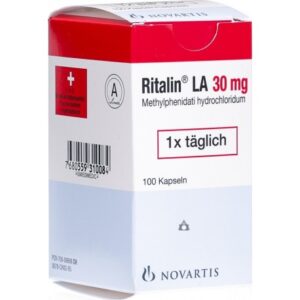
Buy Ritalin 100x 30mg Online
From $234.87
- Reference: #Ritalin-30mg
- Active substance: Ritalin Methylphenidate
- Manufacturer / Brand: Novartis Pharma GmbH
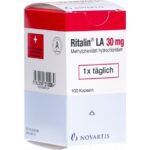
Buy Ritalin 100x 30mg Online
From $234.87
- Description
- Additional information
- Reviews (0)
Description
Introduction
Ritalin 30mg, produced by Novartis Pharma GmbH, is a medication containing methylphenidate as its active substance. It is widely used in the treatment of attention deficit hyperactivity disorder (ADHD) and narcolepsy, providing individuals with improved focus, attention, and cognitive function. This description offers insights into the characteristics, clinical applications, and considerations associated with Ritalin 30mg.
Characteristics
- Active Substance: Ritalin 30mg contains methylphenidate, a central nervous system stimulant that belongs to the class of medications known as psychostimulants. Methylphenidate works by increasing the levels of neurotransmitters such as dopamine and norepinephrine in the brain, leading to enhanced alertness and concentration.
- Formulation: Ritalin 30mg is available in the form of tablets, with each tablet containing 30 milligrams of methylphenidate hydrochloride. This standardized dosage allows for precise administration and ensures consistent therapeutic effects.
- Manufacturer: Ritalin 30mg is manufactured by Novartis Pharma GmbH, a leading pharmaceutical company known for its commitment to innovation and quality in healthcare. Novartis’s expertise in pharmaceutical research and development ensures that Ritalin 30mg meets rigorous standards for safety and efficacy.
Clinical Applications
- Attention Deficit Hyperactivity Disorder (ADHD): Ritalin 30mg is primarily indicated for the treatment of ADHD, a neurodevelopmental disorder characterized by symptoms such as inattention, hyperactivity, and impulsivity. Methylphenidate helps alleviate these symptoms by improving attention span, impulse control, and behavioral regulation.
- Narcolepsy: In addition to its use in ADHD, Ritalin 30mg is also prescribed for the management of narcolepsy, a sleep disorder characterized by excessive daytime sleepiness, sudden muscle weakness (cataplexy), and sleep disturbances. Methylphenidate helps promote wakefulness and reduce episodes of daytime sleepiness in individuals with narcolepsy.
Considerations
- Dosage and Administration: The dosage of Ritalin 30mg is individualized based on factors such as the patient’s age, weight, and response to treatment. It is typically administered orally, with dosing frequency and timing adjusted to optimize therapeutic effects while minimizing side effects.
- Monitoring: Regular monitoring of treatment response, including improvements in attention, behavior, and academic performance, is essential during Ritalin therapy. Healthcare providers may also monitor vital signs, growth parameters, and potential adverse effects to ensure safe and effective use of the medication.
- Side Effects: Common side effects of Ritalin 30mg may include insomnia, decreased appetite, weight loss, irritability, and headache. These side effects are usually mild and transient, but patients should report any persistent or severe symptoms to their healthcare provider.
- Abuse Potential: Methylphenidate has the potential for abuse and dependence, particularly in individuals with a history of substance abuse or addiction. Healthcare providers should carefully assess patients for risk factors and monitor for signs of misuse or diversion of the medication.
- Long-Term Use: The safety and efficacy of long-term Ritalin therapy have not been fully established. Healthcare providers should regularly reassess the need for continued treatment and consider alternative management strategies if necessary.
Conclusion
Ritalin 30mg, containing methylphenidate as its active substance, is a valuable medication for individuals with ADHD and narcolepsy. By improving focus, attention, and wakefulness, Ritalin 30mg helps individuals manage their symptoms and improve their quality of life. When used as part of a comprehensive treatment plan that includes behavioral interventions and support, Ritalin 30mg enables individuals to thrive and reach their full potential.
Additional information
| Quantity | 1, 5 |
|---|
Be the first to review “Buy Ritalin 100x 30mg Online” Cancel reply
Related Products
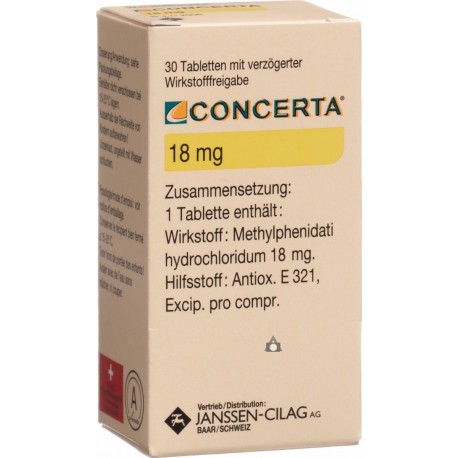
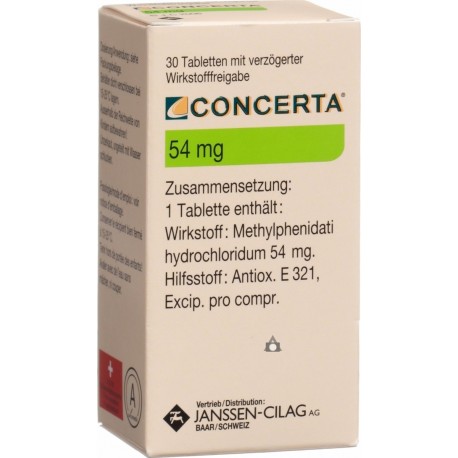
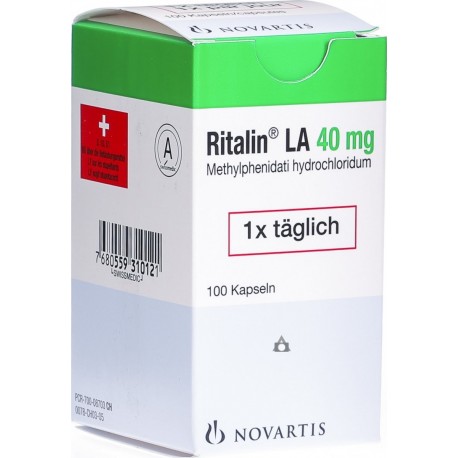

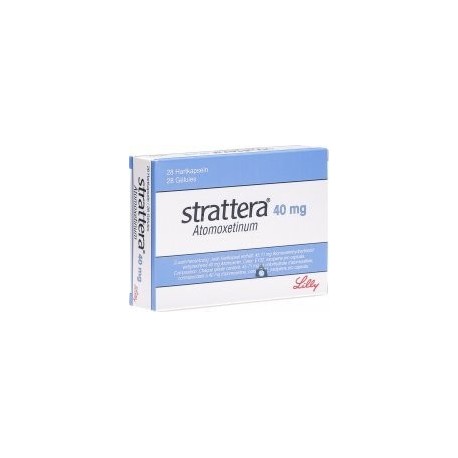

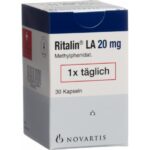
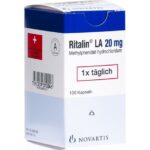
Reviews
There are no reviews yet.